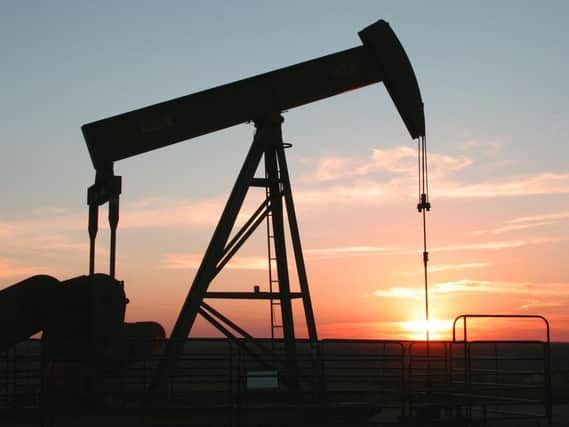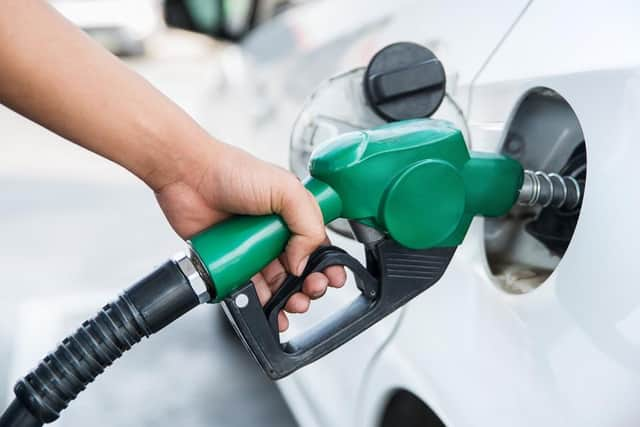Why have oil prices dropped? How coronavirus is impacting the price of petrol


More than £140 million billion was wiped off the value of UK companies on the FTSE 100 following early trading on Monday as the stock exchange dropped to a four-year low.
Major oil companies, including BP and Shell were hard hit, with shares in both losing around 15 per cent of their value on Monday morning. However, smaller operators suffered even greater losses, with some seeing half the value of their shares wiped out.
Advertisement
Hide AdAdvertisement
Hide AdWholesale oil prices fell more than 20 per cent overnight - the fastest decline since the first Gulf War - with the value of Brent crude down to $33.60 dollars (£25.57) per barrel.


What has caused the drop in oil prices?
The sudden drop in oil values has been sparked by a price war between Saudi Arabia and Russia in response to the effects of the coronavirus outbreak.
Oil prices fell sharply last month as the disease had a major impact on demand. It has led to official travel restrictions in China and other parts of the world, a slowdown in global economic activity and worldwide decline in travel, all of which have contributed to a significant drop in demand for fuel and other oil products. This has in turn forced down the wholesale price of oil.
As a result, OPEC (the Organization of the Petroleum Exporting Countries) proposed restricting oil production in an effort to stabilise prices. At a summit on Friday, it suggested all OPEC and non-OPEC nations should cut production by 1.5 million barrels a day. However, non-OPEC nation Russia - the world’s third biggest oil producer - rejected the plan, saying it wanted to assess the full impact of the virus on demand before taking action.
In response, Saudi Arabia announced it was cutting the price of its oil and ramping up production, sending the wholesale price tumbling. Saudi Arabia is the world’s second-largest oil producer, behind the US but ahead of Russia.
Experts have warned that if an agreement can’t be reached between Russia and Saudi Arabia, the value of oil could plummet further.
What does it mean for petrol prices?
While the immediate impact of Saudi Arabia’s actions has been major disruption to trading markets, it could have a more positive effect for UK motorists.
Reductions in wholesale prices last month helped drive some of the sharpest drop in petrol and diesel prices for 20 years and industry experts are predicting the current drop could lead to a 10p per litre reduction in fuel prices.
Advertisement
Hide AdAdvertisement
Hide AdRAC fuel spokesman Simon Williams said: “This is looking like the biggest single daily drop in the oil price in 20 years. It should translate to some serious cuts at the pumps, particularly as the price of both petrol and diesel is still overpriced despite two rounds of cuts from the supermarkets last month.
“The last time we saw the wholesale price of petrol this low was in March 2016 which led to an average price of 106p a litre two weeks later. That’s nearly 17p a litre below the current average of 122.85p. The diesel wholesale price was last this low in September 2016 which yielded a price of 113p a litre – 12.5p below its current UK average of 125.59p. It might be a bit too much to think we will see these prices again based on a one-day drop in the oil price but we ought to see at least 10p a litre coming off the price of unleaded in the next fortnight which would produce an average of 113p – a price last seen in October 2016.
“Having said that, much will depend on what the Chancellor does in his Budget on Wednesday and we strongly hope he does not see this an opportunity to hike fuel duty given the currently volatility of the oil market.
“Ironically, the latest oil price collapse has been brought on by OPEC and its allies, principally Russia, failing to agree another round of production cuts to prop up the barrel price in the wake of the slump caused by the coronavirus impacting global demand. Russia appears to want to keep the price of oil low to hurt the US’s shale oil production, while Saudi Arabia seems to want to make a point to Russia that it can withstand an even lower oil price as its cost of production is the lowest in the world.”